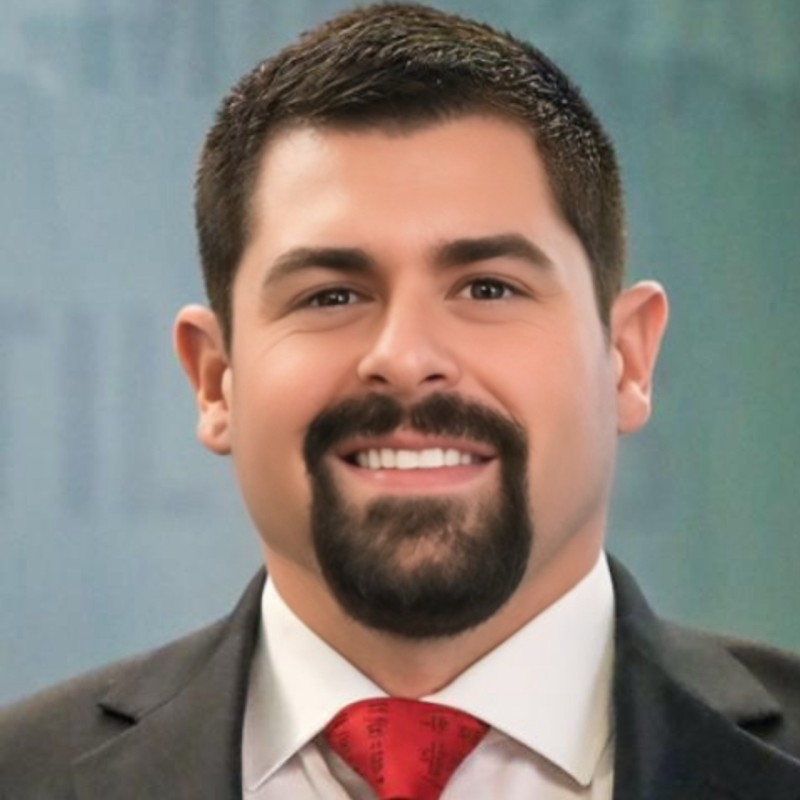True Talks
The Power of Culture and Trust in Project Delivery
In this episode of Contruent True Talks, host Andy Verone sits down with Josh Maida, President of Samuel Engineering, to explore leadership in engineering and construction. Josh shares insights from nearly two decades in EPC projects worldwide, emphasizing how strong culture, trust, and communication transform conflict into collaboration. From bridging generational gaps to embracing modular execution and AI, Josh highlights strategies that keep teams united, resilient, and focused on delivering projects that truly make an impact.
Subscribe to our mailing list to receive updates on upcoming episodes!
Featured Guest

Josh Maida
President of Samuel Engineering
Josh Maida is President of Samuel Engineering, bringing over 20 years of experience in the energy, power, and mineral processing sectors. He’s led projects ranging from small scale to more than $1B in installed cost, and his expertise spans process engineering, project controls, cost estimating, scheduling, and executive management. Josh holds a Bachelor of Science degree with dual emphasis in Economics & Business and Petroleum Engineering from the Colorado School of Mines, plus an MBA from the University of Colorado. He’s also a certified Project Management Professional (PMP).
Transcript
Show the full transcript
True Talks: The Power of Culture and Trust in Project Delivery
Andy: Welcome to another episode of Congruent True Talks, where we sit down with industry leaders to discuss innovations, challenges and opportunities shaping the world of engineering, construction and project controls. I’m Andy Veron, your host, and today I’m excited to be joined by Josh. Josh, welcome to True Talks.
Josh: Yeah, thanks, Andy. I’m excited to be here today. I appreciate it.
Andy: We have a global audience, we reach people from all over the world. Spend a couple minutes and do a proper introduction of yourself and where your career has taken you.
Josh: Sure. No problem. Again, thanks for having me. I’m Josh Maida, president of Samuel Engineering. We’re a global engineering, procurement, fabrication, construction company focusing on heavy industrial sectors, energy, utilities, mineral processing, renewable fuels, you name it. We were founded about 30 years ago by Claudia Samuel, and we’ve grown to have offices around the country. We’ve completed projects on every continent except Antarctica.
Josh: I’m an engineer by schooling, studied at the Colorado School of Mines here in Colorado. I also have an executive MBA from the University of Colorado and I’ve obtained my Professional Engineer certification as well as my Project Management Professional. I’m in my 19th year at Samuel Engineering.
Josh: I was drawn to engineering and problem solving from an early age. Like most engineers, I got the cliché, I was good at math and science. My dad was a civil engineer in the military, and I thought it was really cool when he’d come home, lay out full-size plans on the kitchen table with colored pencils and rulers. I’d sit there and he’d explain what things were. I had that mindset from the beginning, and fast forward to today, I still love what I do.
Andy: That’s awesome, Josh. What a great background. I had a similar experience with my dad and grandfather being in construction their entire lives. My earliest memories are listening to them talk about being behind schedule, crews not showing up, materials not available on site. I think that led me to this space as well, trying to make a difference in it.
Andy: Have those projects taken you to faraway places?
Josh: Yeah, it’s funny. I travel a lot, and friends say, “You must travel to great places.” A lot of times our work is in the middle of nowhere. I’ve lived in Nome, Alaska, saw the Iditarod finish while building a mineral processing plant in the middle of winter. I’ve traveled through Texas, Wyoming, Middle America, worked in California and in Turkey. South America too, Chile, Argentina, Bolivia. Most corners of the world. Still looking for that job in Antarctica, and someday I want us to do a job in space. I don’t know if I’ll get a chance to go up there, but it’d be pretty cool.
Andy: There was a major milestone this week with SpaceX, so that may not be too far away.
Andy: You and I picked an aggressive topic. We had a call a couple weeks back and we’re focusing today on “strong leadership weathers any storm.” We’ll start with bridging divisiveness among teams and, in the world we live in, probably most importantly. When you think about complex projects, conflict will happen. It’s the nature of the work we do. What strategies do you use to turn conflict into collaboration?
Josh: Great question, and it reminds me of something a mentor told me, bad news is not like wine, it doesn’t get better with age. Early, effective communication is one of the best ways to deal with conflict, especially with complex problems. You have to approach it with a partnership mentality. Honest discussion about the issues, as early as possible, lets everyone zero in on the solution, not be lost in the past.
Josh: Too often the client-contractor relationship gets marred by a purely transactional mindset. Everyone worries about pennies in the contract and legalese. Nobody really wins in the end. At my company it’s about relationships, people and building trust between the client, stakeholders and us as service providers. What we do transcends one project. Relationships do too. We’ve had many projects where people call us out of the blue, “We heard you did a good job for someone, we’d love to hire you.” When clients become unpaid marketers for us, that’s the goal. It comes from focusing on how best to approach the problem, especially on complex ones.
Andy: Great background. When you think about building teams, you’ll have young engineers entering the field alongside seasoned experts. What have you learned about uniting those perspectives into a cohesive team? How do you bridge a young engineer fresh out of college with someone who’s been at Samuel for 20, 30, 40 years?
Josh: This is near and dear to my heart because the EPC industry has evolved. Companies send work overseas, technology is changing fast, often faster than people can keep up. Younger generations never lived without a cell phone, they know how to use tech. You have to bridge that gap and invest in your company’s future.
Josh: First, we hire for the right character and work ethic. If someone fits that mold, we can get them working toward a common goal. You can take someone with 40 plus years’ experience and someone with four days. If they’re passionate about problem solving and have a good work ethic, cohesion happens naturally. We call it the flywheel at Samuel. A flywheel takes a lot of force to get going, but once it’s going, it can run almost indefinitely as long as there’s no friction. That concept helps bridge the generational gap.
Andy: Fantastic perspective and a great analogy. How can leaders maintain trust and alignment when uncertainty or external pressures threaten to pull teams apart, whether it’s a project problem, a customer with different expectations or what’s happening in the world?
Josh: It’s the golden rule, treat people how you want to be treated. Have respect for a coworker, a client, someone else, respect their capabilities and where they’re coming from. They have a boss pressuring them too. That’s where trust and alignment start. If you go in with mutual respect, you’ve cleared a lot of the path through tough times.
Josh: Brené Brown has a quote I remind myself of, clear is kind. Clarity in leadership matters, explain why something is the way it is, and give clear feedback, constructive or positive. Being clear in stressful times is imperative, and over-communicating that clarity is important.
Josh: We’ve seen this work through decisive unity in our leadership team. During COVID we didn’t lay a single person off. Industries went down, projects went down. We decided not to lay people off because we’re in it for the long run and want to maintain our people. A decision like that takes ultimate clarity and communication among the team.
Josh: We also use a concept Jeff Bezos called disagree and commit. Everyone gets in a room, is heard, talks it through, but everyone leaves committed to what was decided. No side discussions or backstabbing. That concept helps leadership teams stay unified.
Andy: That’s incredible insight, which leads into culture. What role did culture play in navigating challenges and driving success in your current role?
Josh: Culture is the soul of a company, the guiding light, the north star. You have to maintain it. Establishing a strong culture, especially in your leadership team, gets people to buy into the vision and purpose. You need that when tackling big challenges. We’ve been in business nearly 30 years. Our founders set a rock-solid culture. Now it’s my job, and our leadership’s, to carry it forward.
Josh: We want a culture so strong that those who don’t buy in leave on their own. We’ve seen that. That doesn’t mean those people are bad, they may just not be a fit. We still have great relationships with many who moved on. We want to walk the walk. Figure out your core values and stick to them. You won’t have much of a culture if you don’t.
Andy: I’ll share a little personal experience. Right out of college I joined a top-20 engineering company here in Pittsburgh, ranked by ENR. After 25 years, I was still one of the young guys. There were people in their 40th or 45th year. In the engineering community, culture is critical. I felt part of a family. It was hard to leave. Being around talented, smart people fosters culture, but it’s competitive. You always want to work on the best, most challenging project. Do you see that at Samuel?
Josh: Certainly, and that’s good for a company. You always want to raise the bar and bring people up. One of our core values is excellence, the other is compassion. People ask how you do both. You have to be excellent or you won’t sustain, clients will stop hiring you. But you also don’t want to be a hire-and-fire place where people spend their day polishing resumes because they think they’ll get fired. We try to balance that, and it’s been part of our secret sauce for 30 plus years.
Andy: Last one on culture. In today’s environment, how do you balance project pressures, deadlines, budgets and client demands while keeping people engaged and motivated? What are your techniques?
Josh: It is different than years ago. People used to hold out for a pension or had golden handcuffs. Now you see mobility and different mindsets. We make sure we’re committed to our employees. We want to drive excellence, not apathy, but also not have people so scared about their jobs that they aren’t focused on the work. People stay engaged if they feel part of a family, part of something bigger than themselves, helping coworkers, helping the world with solutions that keep the modern way of life, lights on and phones charging. Create a place people are passionate about and want to be on a team, that solves a lot.
Josh: We also try to have diverse work. It’s part of longevity. We want to be around for hundreds of years, so we evolve. It also gives employees diversity in their day, from traditional T&M projects to EPC lump-sum projects, across many industries around the world. In one week, someone could fill out a time sheet with a job in Africa, South America, Canada and Virginia. That diversity plus job security and commitment to people helps them work through difficult projects, because they all are.
Andy: The projects that make a difference in people’s lives really stick. For me, modernizing floodplain mapping after Katrina and a big retrofit on the Alaska pipeline stand out. Data centers, roads, bridges, highways, do you want to be part of the largest data center in the world? That desire to build and help people is part of being an engineer.
Andy: Let’s shift gears. Engineering is evolving quickly. From your perspective, what’s hot right now in technology, process, contract or industry priorities? What’s making a major difference for the engineering community?
Josh: Feels like everything’s hot. You get magazines and emails, HBR and McKinsey telling leaders what to focus on. A lot of it’s important, but you have to tune some of it out and focus on what matters for your industry.
Josh: We’re at a critical juncture. Clients demand more governance in project contracts. The days of a blank-check T&M project are done. Even if it’s called T&M, it isn’t blank. You have to have governance and tracking. We invest in earned value management and integrated project control systems that help teams manage projects.
Josh: Advanced technology is everywhere. You hear AI and how it’ll replace jobs. It’s quickly supplementing what we do. If you’re not considering AI or machine learning, someone else is and they’ll get a leg up. I don’t believe a computer will completely replace what we do anytime soon, but we can’t ignore advances. We look at how to use tech to do more with the same team, do more work, more efficiently, with better quality and safety.
Josh: Second, a modular execution mindset. BIM dimensions, Plant 3D, 3D modeling through 4D and 5D up to 10D are coming into play more in mid-sized projects. We have our own modular fabrication facility. If we can take risk, safety, quality and weather out of the field and into a controlled shop environment, then send complex modules to the field, that solves many construction challenges.
Andy: I love modular. You become an assembler instead of constructing. Do the hard work in a controlled environment, avoid weather delays, then assemble on site. Different skills too. Next episode we’ll focus on modular and delivery types. On AI, imagine AI validating your estimate or schedule, testing it, suggesting better forecasting methods. Instead of two estimators doing the same work, one estimator compares against an AI model. People are doing it today.
Josh: I think you’re on to something. We do Monte Carlo analysis and digital twins of plants. A digital twin from the project control side can simulate many iterations of schedule and cost, see what happens and find the most efficient point. Pretty cool.
Andy: Any big changes in contracting types? What are you seeing from owners? Are they focusing more on one type, or new types?
Josh: More governance and shifting more risk to the EPC. Traditional EPC mentality, every T crossed and every i dotted before firming price, doesn’t match today’s pace. Data centers move fast, and now powering data centers adds complexity. The pure T&M model doesn’t fit, and the old EPC model might not either.
Josh: We’ve had success with hybrid models. Get into early design, define and de-risk through early stages using 3D, 4D, 5D and integrated design. Establish truthful scope and a fence earlier so you can apply a firm price to the rest. Start open-book with client input on vendors and risk mitigation, then close the book and transition risk to the EPC. That works with the right clients and project sizes.
Andy: Crystal ball time. Where are the greatest opportunities for the industry, and is talent available?
Josh: Modular approaches combined with new technology. AI in engineering will be different from customer service. It will lean on machine learning. We sit on a gold mine of data, 30 plus years. Use it to launch projects and scale lab-proven tech to full production, like zero-emissions steel and cement or turning corn into aviation fuel. Tech is available to help move faster.
Josh: Large EPCs have used advanced tech and modular concepts for a long time, but it hasn’t fully caught on in mid-size projects, 500 million to 1 billion installed cost. Heavy industrial projects average 15 to 20 percent cost overruns, sometimes 50 percent, because they’re complex, risks aren’t considered up front, and they don’t leverage past efficiencies or modular concepts. We think we can carve away at those challenges.
Andy: Every project can’t be a one-off. Even if type, size and location differ, how do you glean lessons learned? You could have AI experts mine 30 years of your own data for lessons. You don’t need anyone else’s data.
Andy: Let’s talk leadership lessons learned. What’s the biggest lesson that helps you weather any storm?
Josh: It’s cheesy, but act like a duck. Water off a duck’s back. As a leader you have to let noise roll off. If you’re distracted by noise, you won’t lead well. Don’t let small things get to you.
Josh: Ducks fly in a V for a reason, teamwork reduces air resistance so they fly longer. They can fly much longer than solo. Each person on a leadership team has a job and helps others so they move forward together.
Josh: Picture a duck on a serene pond. It looks like it’s gliding, but underwater the feet move fast. One of the best pieces of advice I got, don’t let people see you freaking out. Remain calm. You don’t want your team reacting to your panic. Work hard behind the scenes, but be calm and graceful where people see you. They’ll follow that calm.
Andy: Fantastic. Don’t manage by the last bit of information you heard. Too many do.
Andy: You’re well into your career with great success. What are you most proud of?
Josh: Longevity. How long I’ve been here. I took a roundabout way. After engineering school I became a firefighter and planned on medical school. My roommate worked at Samuel and said, use your degree before you decide. I did, and the job found me. I started in project controls, then engineering groups, project engineering, project management, project development, and into what I do now.
Josh: I had many chances to leave, shiny objects, money, titles, but something kept me from taking the bait. I believed in what I was doing, something bigger than myself. Playing the long game has helped me, and it helps me as a leader because it’s our company’s vision. We want to be in business for hundreds of years. I want my son and his kids to be able to work here. That drives decisions.
Andy: What advice would you give the next generation of engineers and leaders?
Josh: Never stop learning. Finishing college means you’re done being forced to learn, but always keep the habit of learning. Albert Einstein said, wisdom is not a product of schooling, it’s a lifelong attempt to acquire it. Keep acquiring it.
Josh: In our industry I tell new engineers and designers, go to construction sites whenever you can. See how your work is implemented in the real world. Go to conferences, lunch and learns, ask questions. Take notes and pay attention. You can now look things up in the meeting. Actively listen, you’ll learn a lot.
Andy: Tremendous insights, and thank you, not only for your partnership in business but your insights today. Truly inspiring to hear how strong leadership, culture and innovation, including modular, can weather any storm. You have to adapt, change and lead. Any final thoughts as we wrap?
Josh: I appreciate you having me. I enjoyed the conversation. I’m passionate about these topics and could talk for hours. I’m excited for what’s to come. We’re in a prime position to bridge the gap between all the noise out there and the reality that people still want to live their lives, drive their cars, plug in their phones, build data centers. I’m excited about what we can bring in the future.
Andy: Thanks again, Josh. We’ll have you on a future episode. And to our audience, thank you for joining this episode of True Talks. Please continue the conversation on our social channels. If you have insights to share, we love the feedback. Here in the United States we’re approaching Labor Day weekend. Have a great weekend with your family. Be safe and we’ll talk soon.
Josh: You too, Andy. Thanks a lot. Appreciate it.


